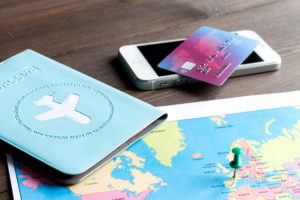Travel insurance only applies in the event of illness?
A student from Bern wanted to go on vacation to Austria at the end of July 2020. One day before she was due to leave, the canton doctor sent her into forced quarantine. The reason: A person in a club where the student was also a guest had tested positive for the corona virus. Now the young woman had to cancel the trip, and one of her travel companions was also not allowed to drive.
The student turned to her travel insurance company, ERV. This assured her on the phone that she would be reimbursed. In writing, however, the question was denied that such a situation as the forced quarantine was not insured. The ERV pointed out that it had made the corresponding regulation clear in its general insurance conditions, because it said that only the insured person who had been quarantined due to an identified illness could claim benefits.
However, the student in question had not tested positive, the quarantine was merely a precautionary measure.
Other insurance companies are more accommodating
Other insurance companies showed up when asked by the SRF consumer magazine? Espresso? much more accommodating and pointed out that such a case of the ordered quarantine would have been insured with them. AXA, Mobiliar, TCS and Zurich Insurance were asked about this. The prerequisite, however, is that the quarantine can be proven, which, however, should be possible by the order of the health department.
In addition, the customer would have had to take out the insurance before the first lockdown; there would have been time until the beginning of March.
The student was of course disappointed, it doesn't help if other travel insurances are more accommodating and would have paid. The sense of travel insurance did not reveal itself to her when she asked. But the consumer magazine turned out to be extremely helpful and followed up with ERV.
Insurance gives in under pressure
Even if the ERV had given the student a written rejection of the service request, she was then understanding and gave in. The insurance company said that it knew that in the current situation more measures for forced quarantine had been prescribed at the student's place of residence and that this was to be expected in the future.
The new situation was taken on and, of course, in the interests of the customers, the decision was made to provide the insurance benefits. However, the statement was only related to the quarantine due to the corona virus. This could mean that the goodwill of the travel insurance does not apply equally to other viruses, whereby the risk of being put into compulsory quarantine because of another illness is significantly lower.
As a result, ERV took over the costs incurred for the cancellation of the trip and also included the request from the student from Bern for these services. ERV even went so far that it did not consider the date on which the insurance was taken out to be decisive, but said that it did not matter whether the insurance was taken out before the first lockdown or later. The only decisive factor is that the quarantine regulation was not in place at the time the insurance was taken out.
Conclusion: travel insurance pays even if quarantine is ordered
The travel insurance always pays if the reason why a trip cannot be started lies in the person of the traveler. If he falls ill and cannot start his trip, the insurance pays the travel fees or any cancellation costs. In the current Corona situation, however, most travel insurances pay if the quarantine is ordered without the person concerned being demonstrably ill. A positive test result is therefore not mandatory.







